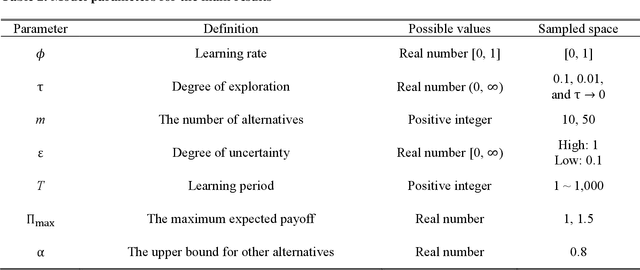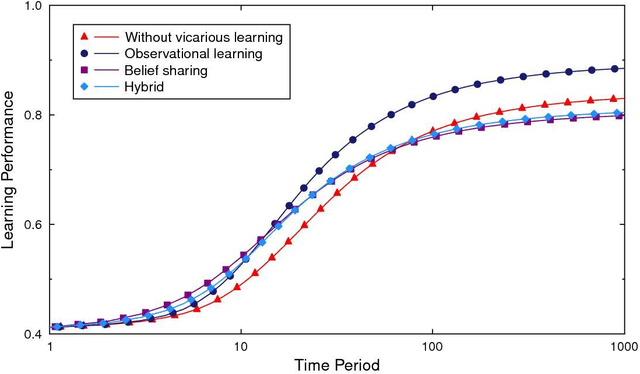Learning what they think vs. learning what they do: The micro-foundations of vicarious learning
Paper and Code
Jul 31, 2020



Vicarious learning is a vital component of organizational learning. We theorize and model two fundamental processes underlying vicarious learning: observation of actions (learning what they do) vs. belief sharing (learning what they think). The analysis of our model points to three key insights. First, vicarious learning through either process is beneficial even when no agent in a system of vicarious learners begins with a knowledge advantage. Second, vicarious learning through belief sharing is not universally better than mutual observation of actions and outcomes. Specifically, enabling mutual observability of actions and outcomes is superior to sharing of beliefs when the task environment features few alternatives with large differences in their value and there are no time pressures. Third, symmetry in vicarious learning in fact adversely affects belief sharing but improves observational learning. All three results are shown to be the consequence of how vicarious learning affects self-confirming biased beliefs.
 Add to Chrome
Add to Chrome Add to Firefox
Add to Firefox Add to Edge
Add to Edge